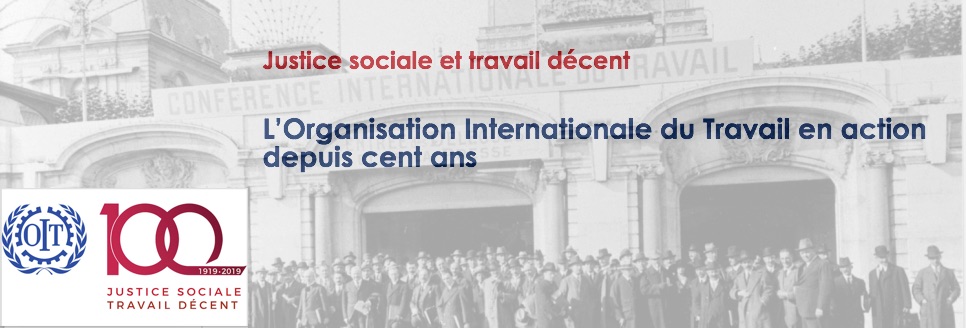L'objectif de cette présentation est de partager les résultats de mon projet postdoctoral. Mon projet porte sur les procès traités par le Comité de la liberté syndicale, institué par le Conseil d'Administration, intentés contre les dernières dictatures en Argentine et au Chili pour violation des droits syndicaux, avec pour objectif de mieux comprendre comment les normes et les principes universels de l'OIT ont été traduits dans cette région.[1]
Ces affaires n'ont pas encore fait l'objet d'études, malgré le fait qu'elles aient été un vecteur important d'intervention de l'OIT dans la région et qu'elles aient eu des conséquences sociales et politiques qui mériteraient une étude académique attentive. En premier lieu, ces procès permettent de comprendre les tensions qui ont eu lieu au sein de l'OIT, la réception et la «traduction» des conventions de l'OIT dans les ordres juridiques nationaux pendant le XX siècle et la manière dont les normes ont été utilisées par les différents acteurs, notamment les syndicats et les gouvernements. En deuxième lieu, chaque affaire permet d'analyser une documentation peu connue sur la période et constitue une source d'informations très importante sur les réseaux de médiateurs et spécialistes qui ont fonctionné lorsque ces gouvernements autoritaires ont essayé d'apporter de profonds changements à la législation du travail. Enfin, ces procès présentent les rapports sur les missions de contacts directs faits sur le terrain par les représentants de l'OIT et les rencontres avec les gouvernements, victimes, syndicalistes et organisations dénonciatrices, ce qui semble avoir constitué une sorte de laboratoire pour mettre en place des initiatives de l'OIT dans le monde.[2]
Pour comprendre pleinement l'impact des procès en Argentine et au Chili entre 1973-1990, il faut bien comprendre que ces deux pays ont été actifs dans l'Organisation presque depuis sa création et qu'ils ont ratifié ses Conventions dans le même moment où ils ont développé leurs propres codes modernes de relations du travail (Suriano 2012; Suriano, Lobato et Ramacciotti 2014; Yañez Andrade 1999; Salazar Vergara et Pinto 1999; Humeres Noguer 2016). Ce processus, qui a été crucial dans la construction des États modernes, a été réalisé bien après l'élaboration de leurs droits nationaux et Constitutions, y ajoutant en nouveau revêtement de complexité pas toujours bien évalué.[3]
Cette communication considère les relations entre l'Argentine, le Chili et l'OIT dans la perspective de l'histoire du droit du travail dans la région et s'appuie sur une démarche qualitative des procès no. 842, 765 et 823 du Comité de la liberté syndicale, disponibles dans la base de données NORMLEX et suite à une visite d'étude aux Archives du BIT à Genève.
ENGLISH VERSION
THE ILO AND LATIN AMERICA'S CONFLICTING TIES
The aim of this proposal is to present the outputs of my postdoctoral project. The project focuses on the “Cases” opened at the ILO Freedom of Association Committee against the Argentinean and Chilean dictatorships for violating workers' rights while fostering my interest in how the universal and standardised norms and principles of the ILO were ‘translated' in the region.[1]
The Cases haven't received enough attention from researchers yet, even when they were an important channel for ILO actions in the region and produced a large set of political and legal consequences that deserve special academic consideration. First, because through them it is possible to study the internal tensions of the ILO; the reception and ‘translation' of the ILO Conventions incorporated in the national legal systems during the 20th Century, and the use of them by different actors, especially Trade Unions and governments. Secondly, because on each Case, unstudied documentation about the period can be found, as well as remarkable information about mediators and experts' networks functioning when those authoritarian governments tried to make serious redrafting of the original labour legislation. And finally, since they included reports of the direct contacts missions performed by ILO's officials visiting governmental authorities, victims, unions leaders and denouncers, in what can be seen as a laboratory of how those ideas were put in practice.[2]
To fully understand the impact of the Cases in Argentina and Chile between 1973-1990, the fact that both countries were active in the ILO almost since it foundation and ratified international labour Conventions at the same time that they were developing their own ‘modern' encoding for labour relations must be acknowledge (Suriano 2012; Suriano, Lobato, y Ramacciotti 2014; Yañez Andrade 1999; Salazar Vergara y Pinto 1999; Humeres Noguer 2016). That process, that was crucial in the building of modern states, was done much later than their national laws and Constitutions, adding an extra layer of complexity that is not always adequately addressed.[3]
The paper considers the relations between Argentina, Chile and the ILO from the viewpoint of labour law history in the region, while performing a qualitative approach to the Committee on Freedom of Association's Cases 842, 765 and 823 available on NormLex (and after a direct reading made on a research visit to ILO's Archives in Geneva).

 PDF version
PDF version
